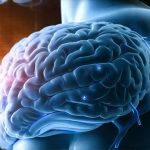The seemingly innocuous act of consistently skipping evening meals can ripple outwards, impacting far more than just weight management or dietary habits. While often framed as a quick fix for calorie restriction or a consequence of busy schedules, the physiological effects of this practice extend into surprisingly delicate areas of bodily function – including balance and stability. Many people don’t immediately connect missed evening meals with issues like dizziness, lightheadedness, or even falls, but these symptoms can be directly linked to the metabolic shifts and nutrient deficiencies that arise from regularly denying the body crucial nighttime nourishment. It’s a subtle vulnerability often overlooked until it becomes disruptive, impacting daily life in ways we rarely anticipate.
This isn’t merely about feeling hungry before bed. The human body operates on rhythms – circadian cycles governing everything from hormone release to digestive processes. Skipping dinner disrupts these cycles, particularly affecting blood sugar regulation overnight and potentially leading to a cascade of consequences that manifest as instability, especially within the bathroom environment where slips and falls are more likely to occur due to inherent hazards like wet surfaces and enclosed spaces. This article will explore the intricate connection between skipping evening meals and potential bathroom instability, outlining the physiological mechanisms at play and offering strategies for mitigating these risks without resorting to drastic dietary changes. It’s about understanding why this happens and what can be done to restore a sense of balance – both literally and figuratively.
The Physiological Link: Blood Sugar, Hormones & Balance
The body’s reliance on consistent energy input is paramount for maintaining stable physiological functions. When we skip dinner, we essentially deprive our bodies of fuel during a period when it’s preparing for repair, restoration, and overnight metabolic processes. This leads to a drop in blood glucose levels – hypoglycemia – which can significantly impact balance and coordination. The brain, being incredibly sensitive to glucose fluctuations, is particularly vulnerable. Even mild dips in blood sugar can manifest as dizziness, lightheadedness, and impaired cognitive function, all of which increase the risk of falls, especially in environments like bathrooms where quick reactions are needed.
Beyond blood sugar, hormonal imbalances play a critical role. Cortisol, often dubbed the “stress hormone,” tends to spike when we haven’t eaten for extended periods. Elevated cortisol levels can interfere with sleep quality and further exacerbate glucose dysregulation. Simultaneously, the lack of consistent nourishment disrupts the production of other crucial hormones involved in energy metabolism and muscle function. Muscle weakness and fatigue are common consequences, making it harder to maintain stability and increasing the likelihood of a fall, particularly when combined with the often-slick surfaces and confined space characteristic of bathrooms.
Importantly, this isn’t just about immediate effects. Chronic skipping of evening meals can lead to metabolic adaptation where the body becomes less efficient at regulating blood sugar over time. This creates a vicious cycle – requiring even greater dietary consistency to avoid significant fluctuations and maintain stability. The bathroom, with its inherent risks, becomes a particularly vulnerable location for these symptoms to manifest due to the combination of physical constraints and potential for sudden movements. Understanding how key takeaways from tracking digestive data can help identify patterns is key.
Understanding Orthostatic Hypotension & Bathroom Risks
Orthostatic hypotension is a common contributor to falls, especially in older adults, but it can be significantly worsened by inconsistent eating patterns. It refers to a sudden drop in blood pressure when standing up from a sitting or lying position. This happens because gravity causes blood to pool in the legs, and normally, the body compensates quickly to maintain adequate blood flow to the brain. However, if you’re dehydrated (a common consequence of inadequate evening hydration) or have depleted energy reserves due to skipping dinner, this compensatory mechanism can be impaired, leading to dizziness, lightheadedness, and even fainting.
The bathroom environment amplifies these risks in several ways:
– Rapid Transitions: Bathrooms often involve quick movements like standing from the toilet, stepping out of a shower, or bending down to wash hands. These transitions require rapid blood pressure adjustments that are difficult for someone experiencing orthostatic hypotension.
– Confined Space: The limited space makes it harder to regain balance if you start to feel unsteady, and there’s less room to maneuver safely.
– Wet Surfaces: Water on the floor increases the risk of slipping, making a fall more likely and potentially more severe.
Therefore, even mild orthostatic hypotension triggered by an empty stomach can have disproportionately serious consequences in the bathroom. Proactive measures to support blood pressure regulation are essential for those who routinely skip evening meals. It’s important to consider if skipping meals improve or worsen existing conditions.
The Role of Dehydration & Electrolyte Imbalance
Dehydration is often a hidden consequence of skipping meals, including dinner. We tend to associate hydration with thirst, but often don’t consciously link it to consistent food intake. Food provides not only nutrients but also contributes to our overall fluid balance. When we skip a meal, we’re essentially reducing our water intake as well. This is particularly problematic overnight when the body loses fluids through respiration and perspiration.
Furthermore, skipping meals can disrupt electrolyte balance. Electrolytes – such as sodium, potassium, and magnesium – are crucial for nerve function, muscle contraction, and fluid regulation. These electrolytes are replenished through diet, and consistently missing a meal reduces their intake. An imbalance in electrolytes contributes to muscle weakness, cramping, and dizziness, all of which impair balance and increase the risk of falls. Low potassium levels, for example, have been directly linked to muscle fatigue and impaired coordination.
To counter these effects:
1. Prioritize hydration throughout the day – don’t wait until you feel thirsty.
2. Consider electrolyte-rich beverages or snacks if skipping dinner is unavoidable (though addressing the meal skipping itself remains the ideal solution).
3. Be acutely aware of signs of dehydration and electrolyte imbalance – dizziness, fatigue, muscle cramps – and respond accordingly. Recognizing delayed reactions from acidic meals can help you manage overall gut health.
Nutritional Deficiencies & Long-Term Stability
While immediate effects like blood sugar drops and orthostatic hypotension are concerning, the long-term consequences of consistently skipping evening meals can be equally detrimental to balance and stability. Over time, a lack of consistent nourishment leads to nutritional deficiencies in essential vitamins and minerals crucial for nerve health, muscle function, and bone density.
For example:
– Vitamin D: Essential for calcium absorption and strong bones, preventing falls related to weakened skeletal structure. Deficiencies are common with inadequate dietary intake.
– Magnesium: Plays a vital role in nerve transmission and muscle function. Low magnesium levels can contribute to muscle cramps, weakness, and impaired balance.
– B Vitamins: Crucial for nerve health and energy production. Deficiencies can lead to neuropathy (nerve damage) which impacts coordination and sensation.
These deficiencies accumulate over time, gradually eroding the body’s ability to maintain stability. This isn’t just about avoiding falls; it’s about preserving overall physical function and quality of life. Addressing this requires a holistic approach – not simply focusing on replacing individual nutrients but rather ensuring consistent, balanced nutrition throughout the day, including a regular evening meal whenever possible. You might benefit from evening gut reset meals after overindulging or skipping meals. Furthermore, consider how skipping meals may lead to bloating and impacts overall digestive health. Finally, it’s important to know if skipping meals harm gut bacteria.
Ultimately, bathroom instability linked to skipping evening meals is rarely an isolated incident. It’s often a symptom of a larger issue: a disruption in the body’s natural rhythms and a lack of consistent nourishment. Recognizing this connection and proactively addressing it – through dietary adjustments, hydration strategies, and awareness of potential risks – can significantly reduce vulnerability and promote overall well-being. If you suspect deeper issues, looking at signs from test results that call for diet overhaul can be a good next step.


















